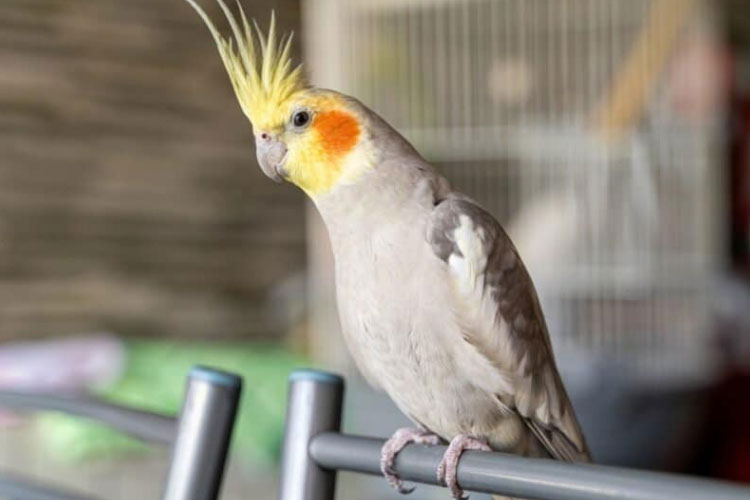Cockatiels are like small babies–gentle, cuddly, and in for a lot of treats. These friendly, gentle beings love hogging a wide range of foods, especially fruits and seeds. However, not all fruits are suitable to feed them, and it’s only a matter of question whether cockatiels can eat a seeded drupelet fruit like blackberry or not.
So, is it even possible to feed cockatiels blackberries? The simple answer is, Yes, cockatiels can eat blackberries as they’re very nutritious. However, the seeds of blackberries can cause fatal damage to cockatiels, which is why they should be fed in very small portions with a good amount of intervals.
Even though it’s not entirely risk-free, cockatiels still love this mellow sweet, and, juicy fruit as treats. If fed with proper precautions, your cockatiel will be satisfied, and you’ll be tension-free. To learn how to, read on.
Can You Feed Blackberries to Cockatiels?
If you’re asking can cockatiels eat blackberries or not, you most certainly can! That’s because they’re not just filled with nutrients, but they’re quite sweet and delicious. Moreover, they’re rich in vitamin K and C, which tremendously help in improving the immune system of your cockatiel. Believe it or not, it’s quite the added benefit!
Not to mention, blackberries are low in calories and filled with a good amount of carbohydrates and fats with a lot more benefits, which makes them a good snack for a cockatiel.
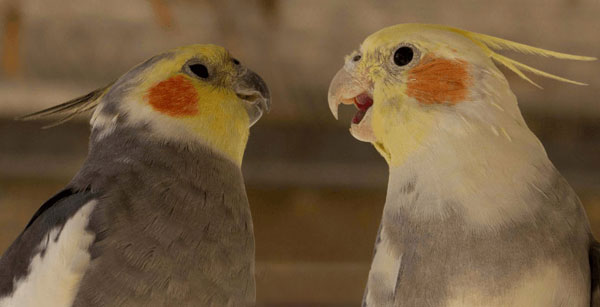
However, the problem lies within the sugar content that exists within these fruits alongside their seeds. Sugars are not too good for any bird and can significantly damage its digestive system. That’s because they have a very weak digestive system and can’t digest everything. This is why if they consume the seeds of blackberries, they can suffer from indigestion and even die in rare circumstances.
Luckily, that doesn’t mean you can’t feed blackberries to your cockatiels. All you have to do is keep the number of blackberries in moderation so that the sugar or seed intake isn’t too much. Just like any fruit, blackberries can prove to be a great occasional snack. Sadly, it’s better to not include it in regular meals as it can prove to be fatal for your cockatiel.
With proper techniques, precautions, and feeding styles, it’s possible to feed your cockatiels some blackberries generously, and it’s not even going to be harmful. Feeding them blackberries occasionally will only improve their immune system and keep their mood intact as it’s a fruit with great nutrients and minerals.
Do Cockatiels Like Blackberries?
Blackberries are a very succulent type of berry that is juicy, tangy, and has a tart flavor. This distinct type of fruit and flavor is one of the favorites of cockatiels as they’re fond of sweet and tangy fruits. It’s entirely viable as the ripest blackberries thrive on a tangy and sweet flavor, and it’s no surprise that cockatiels love a pair of fresh fruits as their snacks.
However, if the berries aren’t fresh, there’s a possibility your cockatiel might reject the berries. That also means that even if your cockatiel goes head over heels on blackberries or even rejects it, never feed them as much as you want as it can cause health issues.
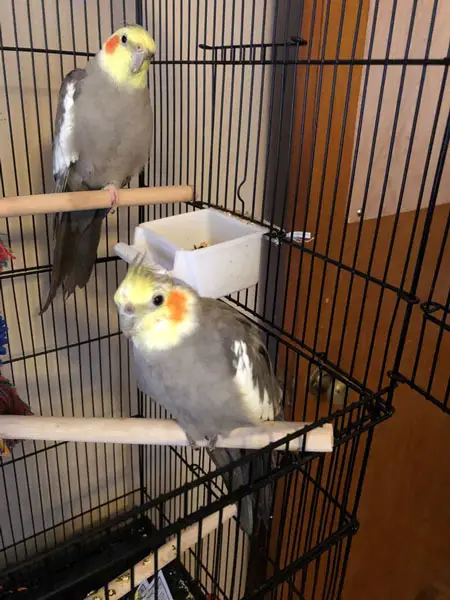
These berries are tasty and impactful as long as you allow them to take a couple of bites now and then. Unfortunately, if you tend to overfeed them, they’ll be at high risk of sugar content consumption and start to have indigestion issues like an upset stomach.
Health Benefits For Cockatiels Eating Blackberries
Blackberries fulfill some of the most important nutrient consumption requirements a cockatiel’s body can ask. Some of the major health benefits your cockatiel will have after consuming blackberries are-
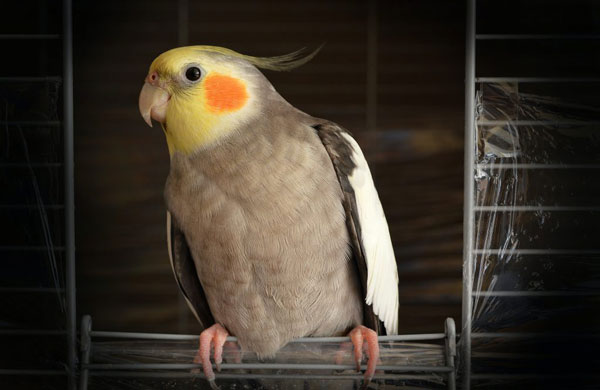
Rich in Vitamin A, C, and K
Vitamin A, C, and K are some of the most important vitamin requirements for proper blood circulation in the human body and that includes your pet bird as well. Blackberries are very high in vitamin A, C, and K which are not offered by every food group.
Vitamin A majorly improves cell growth, vision, and reproduction and increases the ability to fight against diseases of a cockatiel. The immune system gets a great boost from the cockatiels since blackberries are rich in vitamin A.
Consequently, blackberries are also quite high in vitamin C, which drastically strengthens the immune system and prevents the brewing of infection within the body.
Not to mention, the vitamin K in blackberries improves the blood clotting abilities of the cockatiels, which is a great advantage as their inferior and soft birds.
Improves Heart Condition
Blackberries are high in fiber, which majorly helps in the digestion of food and also actively works in lowering cholesterol levels. This ability improves the heat condition immensely.
Improves Digestion
The common reason for most of the problems a cockatiel faces is indigestion. Blackberries are filled with fiber content and make digestion quite smooth and easy.
Reduces Inflammation
Blackberries are rich sources of antioxidants, which have anti-inflammatory properties. Hence upon consumption, inflammatory issues like seeking or arthritis will reduce immediately.
Reduces High Risks of Obesity
Cockatiels can suffer from obesity and die. Blackberries are low in calories and increase insulin, which drastically reduces the high risks of obesity.
Rich in Manganese
Blackberries are also rich in Manganese, which constantly contributes to the metabolism of fats and carbs while also improving bone health.
Improved Brain Health
Since blackberries have gallic acids or polyphenol in them, it boosts the brain health of a cockatiel by improving their cognitive and motor functions.
How Much Blackberries Should Cockatiels Eat?
Your cockatiel might be very fond of blackberry treats, but even so, limit the proportion of blackberry intake by your bird from time to time.
Since blackberries are high in sugar, they can cause indigestion issues and in turn, cause severe health problems like diarrhea.
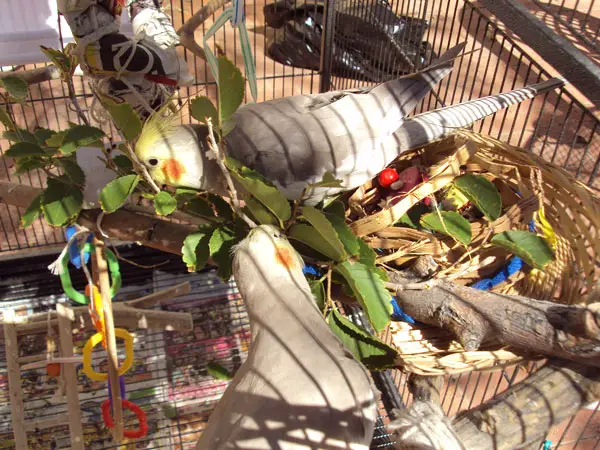
Try to feed them occasionally instead of regularly. Give them blackberries as treats, and that’ll be safe and risk-free.
How Do You Prepare Blackberries for Cockatiels?
Preparing blackberries is pretty easy, although do keep some things in mind. Here’s how you prepare it-
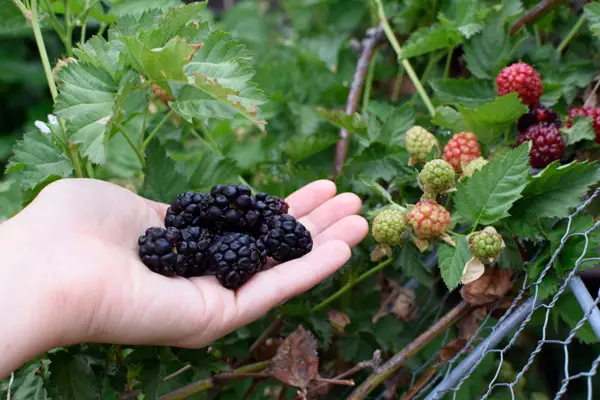
- Thoroughly clean the blackberries with water and remove the stems.
- After cleaning, remove all the vine and seeds.
- Be careful and never serve the berries with stem, vines, and seed on them as they can be very harmful.
- To keep the sugar content in check, serve berries in moderation with a bawl of clean water.
Can You Feed Blackberries to Baby Cockatiels? If so, How?
Even though baby cockatiels are fragile and not mature as adult ones, they can still eat fruits. So, yes, you can feed blackberries to baby cockatiels.
However, you can feed them fruits up until they’ve turned 7 or 8 weeks old. At this time, you can soften the berry, remove all the seeds, stems, and vine and slowly feed them with caution.
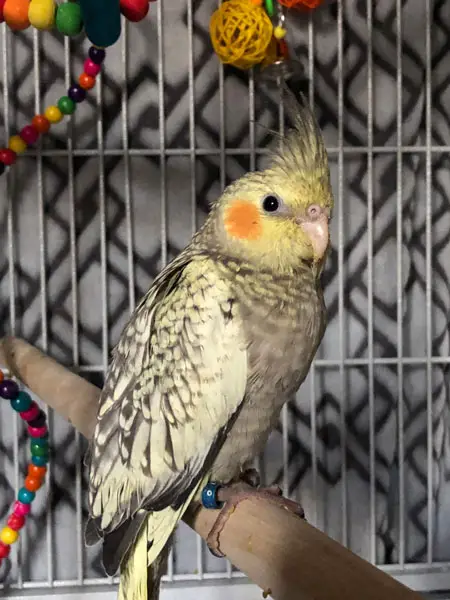
Make sure you don’t overfeed them, as sugary fruits are not a good option as a regular food in their diet.
Frequently Asked Questions
Since cockatiels can’t digest complex foods, you must avoid that.
Things like onion, salt, spicy and salty food, curries, fatty food and snacks, chocolate, avocado, and sugary foods are extremely fatal for cockatiels.
Cockatiels can eat all those berries, which are also safe for humans to eat.
Berries like blackberries, raspberries, cranberries, and strawberries are some of the good sources of vitamins and minerals which cockatiels like to eat.
Even though honey is filled with sugar, it’s not deemed unsafe to feed it to cockatiels. Honey is filled with immune-boosting antioxidants, which can improve the bird’s disease-fighting system if fed on a moderate or rare occasion.
Conclusion
Cockatiels love eating juicy and tangy fruits now and then. This is why it’s common to think, can cockatiels eat blackberries or not. Luckily enough, you can feed this delicious fruit to your cockatiel occasionally and help improve their health.
Although now you know the risks of blackberries or sugary fruits. Hence try to be careful about the portion and follow the steps mentioned above thoroughly to keep your bird healthy, safe, and risk-free!
Do you know if your cockatiels can eat potatoes or parakeet food? Read our articles about it to learn more.
